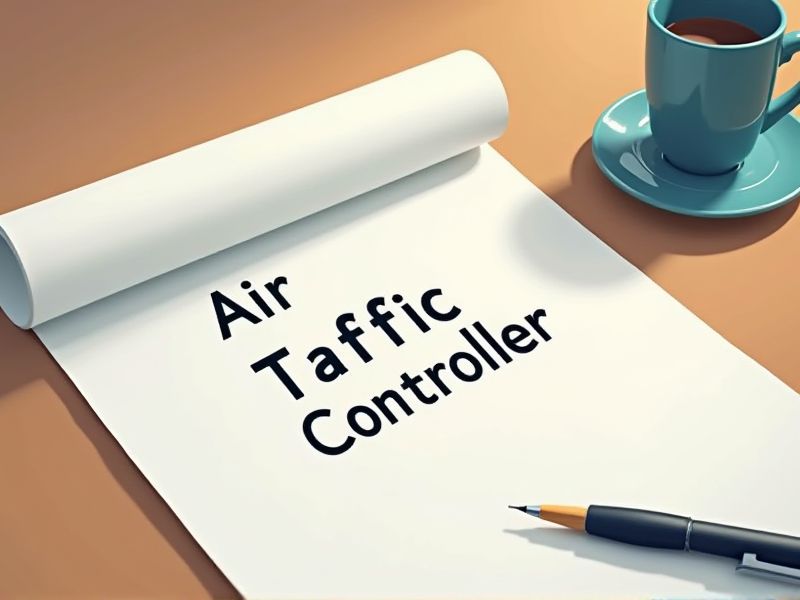
Air traffic controllers manage the safety and efficiency of aircraft in flight, demanding precise skills and expertise. Certifications validate their proficiency in critical areas like aircraft navigation, communication protocols, and emergency procedures. Regulatory requirements often dictate specific certifications to ensure standardized operational practices globally. Key certifications essential for an air traffic controller include those related to radar operations, tower control, and specialized aviation regulations.
FAA Air Traffic Control Specialist Certification
The FAA Air Traffic Control Specialist Certification ensures that individuals have the necessary skills to manage and direct air traffic safely and efficiently. By obtaining this certification, air traffic controllers demonstrate their competency in maintaining communication protocols and navigating complex airspace scenarios. The certification process serves as a crucial gatekeeper, minimizing the risk of errors that could compromise safety. Regulatory compliance is maintained through this certification, aligning air traffic systems with national and international safety standards.
FAA Tower Controller Certification
The FAA Tower Controller Certification is essential because it ensures that air traffic controllers have the skills to manage aircraft safely within the airport airspace. This certification validates their ability to coordinate landings and takeoffs, minimizing risks of collisions. With comprehensive training, controllers can efficiently handle emergency situations, reducing potential delays. Certification also supports uniformity in procedures, promoting better communication between various control centers.
Terminal Radar Approach Control (TRAC) Certification
The TRAC certification is essential for air traffic controllers to manage aircraft safely and efficiently in the critical phase of approach and departure. Controllers equipped with this certification can handle complex radar systems to monitor aircraft movement, reducing the likelihood of collisions in congested airspace. The certification ensures controllers adhere to standardized procedures, which are vital for maintaining consistency and safety across different airports. As air traffic volume continues to grow, having TRAC-certified controllers becomes integral to mitigating potential risks and navigating increased operational demands.
En Route Radar Controller Certification
The En Route Radar Controller Certification ensures an air traffic controller can efficiently manage aircraft over long distances between airports, enhancing aviation safety. This certification confirms that the controller is skilled in using radar technology to monitor aircraft positions and provides accurate guidance. Without this certification, managing high-altitude flights with precision becomes challenging, potentially increasing the risk of mid-air incidents. Rigorous certification processes serve to standardize proficiency across all controllers, leading to more reliable air traffic management.
Air Traffic Management (ATM) Certification
Air Traffic Management (ATM) Certification ensures that air traffic controllers possess the necessary skills and knowledge to manage complex airspace systems efficiently. Without certification, the risk of miscommunication and errors increases, potentially compromising flight safety. As air traffic volume grows, certified controllers are better equipped to handle increased demand and ensure seamless airborne navigation. Certification also sets a standardized level of competence, supporting international consistency and cooperation in air traffic services.
Aviation Safety Certification
Aviation safety certification ensures that air traffic controllers understand critical safety protocols and procedures, reducing the risk of accidents. Without proper certification, controllers might lack essential knowledge, compromising the safety of aircraft in congested airspace. Certification also guarantees that controllers are continuously updated on the latest technological advancements and regulatory changes in the industry. High standards in certification bolster public confidence in air travel, leading to increased passenger numbers and industry growth.
Emergency Procedures and Communications Certification
Air traffic controllers need Emergency Procedures and Communications Certification as it ensures they efficiently manage unexpected and critical situations, reducing the likelihood of incidents. This certification provides them with the necessary skills to coordinate emergency response actions and communicate effectively with pilots and ground teams. Such training is vital for maintaining the safety of airspace operations and minimizing delays caused by unforeseen events. This certification also aligns with regulatory requirements, enhancing compliance with aviation safety standards.
International Civil Aviation Organization (ICAO) Standards Certification
The ICAO Standards Certification ensures that air traffic controllers worldwide adhere to a unified set of procedures, which enhances global aviation safety. It facilitates seamless international air travel by establishing common communication protocols, reducing the risk of misunderstandings. Certification aligns air traffic management practices, which supports efficient and safer navigation of aircraft across international borders. Standardized training and certification build global trust and cooperation, essential for managing increasingly complex airspace environments.
Aviation Meteorology Certification
Aviation meteorology certification equips air traffic controllers with critical knowledge on weather patterns that directly impact flight safety. Controllers with this certification can make informed decisions to redirect or delay flights, preventing potential weather-related incidents. Their ability to interpret complex meteorological data helps in anticipating changes that could affect air traffic flow. Pilots rely on these professionals to provide accurate and timely weather information, enhancing overall airspace management.
ATC Simulation Training Certification
ATC Simulation Training Certification is essential to ensure air traffic controllers develop critical skills in handling real-life scenarios effectively. Certified training provides a standardized framework that enhances controllers' decision-making abilities during high-pressure situations. The certification ensures that controllers are up-to-date with the latest protocols and technological advancements in aviation. Rigorous training and certification improve safety outcomes by reducing the likelihood of human error.
Summary
When an Air Traffic Controller earns additional certifications, you gain confidence knowing they're more skilled in managing complex flight scenarios. This advanced training enhances their ability to manage air traffic efficiently, reducing delays. Controllers with certifications can handle emergency situations more effectively, ensuring increased safety. They also bring a higher level of professionalism to the aviation industry, fostering trust and reliability.
